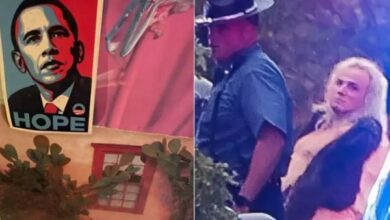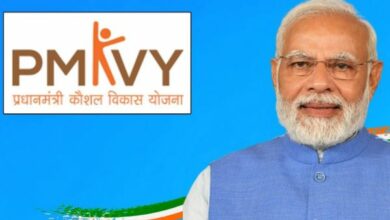A constitution bench of the Supreme Court on Wednesday decided to hear from January 25 on petitions challenging the constitutionality of the Maharashtra Social and Educationally Backward Classes (SEBC) Act, 2018, which provide quota to Marathas in jobs and education. Was applied to. The bench refused to pass any order to lift the ban imposed by a three-judge bench in September this year on appointment and entry under the Maratha quota. A stay order was passed by a 3-judge bench citing cases to the larger bench.
Senior advocate Mukul Rohatgi, appearing on behalf of the state of Maharashtra, said that an application for amendment of the order has been filed so that the appointment process can proceed.
A bench of Justices Ashok Bhushan, Justice L Nageswara Rao, Justice S Abdul Nazeer, Justice Hemant Gupta, and Justice S Ravindra Bhat said the matter could be heard in January.
Rohatgi said that about 2185 appointments have come to a standstill due to the adjournment order.
The bench said that the court has only stopped appointments under quota and has not stopped the Maharashtra government from making appointments.
The 5-judge bench also issued notice to the Attorney General of India as the case involved interpretation of the 102nd Amendment of the Constitution.
Also Check: Maharashtra Day 2021: Significance, history, and formation of the state of Maharashtra
The September 9 order further stated that no appointment or admission would be made under the Act for the year 2021-2021.
However, any post-graduate admissions that have taken place to date will continue. The petition challenging the Bombay High Court order before the 3 Judge Bench stated that the Socially and Educationally Backward Classes (SEBC) Act, 2018, which provided 12% and 13% quota to the Maratha community in education and jobs respectively.
Does, in violation of the principles laid down in the case Indira Sawhney v. Union of India (1992), according to which the apex court had reduced the reservation limit to 50%.
On November 30, 2018, the state of Maharashtra enacted the Socially and Educationally Backward Classes (SEBC) Act, 2018 to provide reservation to the Maratha community in relation to jobs and education, as the movement was taking place in the state.
Several petitions were filed before the Bombay High Court challenging the constitutionality of the Act citing the violation of Indira Sawhney’s decision.
On June 27, 2019, a bench of the Bombay High Court comprising Justices Ranjit More and Justice Bharti Dangre upheld the constitutional validity of the Act and reduced the state of Maharashtra to 16% reservation based on the recommendations of the State Backward Classes Commission Directed to do 12-13%.
It further mentioned that as per the case of Indira Sawhney, the state government may grant more than 50% reservation under special circumstances.
Why did the 3-judge bench send the case?
On 9 September, a three-judge bench referred cases to the larger bench to determine whether the state government had the power to declare a class socially and economically backward after the Constitution (102nd) amendment.
A bench of Justice L Nageswara Rao, Justice Hemant Gupta and Justice S Ravindra Bhat observed: “An issue considered by the High Court at the behest of the writ petitioners is whether the Constitution (102nd Amendment) Act, 2018 refers to any particular caste Whether or not it affects the ability of the state legislature to declare socially and educationally backward classes.
” According to the writ petitioners in the High Court, the State Legislature has been deprived of this power after the Constitution (102nd Amendment) Act, 2018 came into force. The High Court overruled the said controversy and upheld the legislative competence of the State Legislature.
There is no official declaration on the interpretation of the provisions inserted by the Constitution (102nd Amendment) Act, 2018. We are satisfied with the interpretation of Articles 338-B and 342-A, which have been inserted by the Constitution (102nd Amendment) Act 2018, as the interpretation of the Constitution involves substantial question of law and for the disposal of such appeals Determination of question is necessary.
Thus, as mandated by Article 145 (3) of the Constitution of India, these appeals need to be considered by a larger bench. In view of our decision to refer these appeals to a larger bench, we do not consider it necessary to decide on other points raised by the applicant.
The bench said, “As the interpretation of the provisions inserted by the Constitution (102nd Amendment) Act, 2018 is an important question of law, as the interpretation of the Constitution of India, these appeals are referred to a larger bench . These cases will be placed before the Chief Justice of India for appropriate orders. “

 Patna University Murder Video: Student Harsh Raj Brutally Beaten To Death By Masked Men
Patna University Murder Video: Student Harsh Raj Brutally Beaten To Death By Masked Men Bobby Kataria Arrested For Human Trafficking; Other Pending Cases Against Him Explored
Bobby Kataria Arrested For Human Trafficking; Other Pending Cases Against Him Explored Indian Soldiers Won in Tug-of-War with Chinese Soldiers at UN Peacekeeping Mission in Sudan: Watch the Viral Video!
Indian Soldiers Won in Tug-of-War with Chinese Soldiers at UN Peacekeeping Mission in Sudan: Watch the Viral Video! Prajwal Revanna To Appear Before SIT On May 31, Apologize To Parents In A Video Release
Prajwal Revanna To Appear Before SIT On May 31, Apologize To Parents In A Video Release WATCH: AAP Punjab Minister Balkar Singh, in Obscene Video Call Viral; BJP and SAD Demand Action
WATCH: AAP Punjab Minister Balkar Singh, in Obscene Video Call Viral; BJP and SAD Demand Action New Footage Of The Tragedy At Rajkot’s Game Zone that killed 27 Emerges
New Footage Of The Tragedy At Rajkot’s Game Zone that killed 27 Emerges Braintree Stabbing Suspect, Jared Ravizza’s Alleged ‘Obama Hope’ Post Controversy Explored
Braintree Stabbing Suspect, Jared Ravizza’s Alleged ‘Obama Hope’ Post Controversy Explored Pradhan Mantri Kaushal Vikas Yojana 2024 Online Application, Courses List, Eligibility Criteria and All You Need To Know
Pradhan Mantri Kaushal Vikas Yojana 2024 Online Application, Courses List, Eligibility Criteria and All You Need To Know